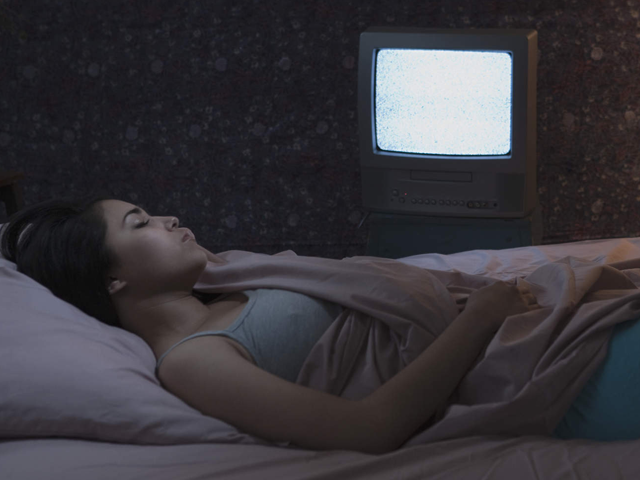Sleeping in front of the TV could make women gain weight
Women who sleep with light exposure are at higher risk of obesity, says study

The women were classified according to their level of exposure to artificial light at night which came from a variety of sources, from small nightlights or clock radios to light shining in from the street to televisions or room lights.
 PHOTO: FILE
PHOTO: FILEOne of the key findings was that women who slept with a television or a light on in the room were 17% more likely to have gained five kilograms (11 pounds) or more during the study period. The correlation remained strong even after controlling for factors like sleep duration, diet, and physical activity.
Although the authors cautioned they could not definitely draw a causal link, they said their findings added to a growing body of evidence that supports sleeping in a dark room.
 PHOTO: MEHWISHHAYAT/INSTAGRAM
PHOTO: MEHWISHHAYAT/INSTAGRAM"Public health strategies to decrease obesity might consider interventions aimed at reducing ALAN while sleeping," wrote Dale Sandler and Yong-Moon Mark Park of the National Institute of Environmental Health Sciences in North Carolina and coauthors.
They suggested that the light may be suppressing production of melatonin, thereby disruption circadian rhythm and eating patterns. Other possibilities were that light acts as a "chronic stressor" disrupting the release of stress hormones such as glucocorticoids that play a part in regulating food intake, or that there may be another mechanism at work that affects metabolism directly.

High light exposure may also "reflect a constellation of measures of socioeconomic disadvantage and unhealthy lifestyle behaviors, all of which could contribute to weight gain and obesity."
Commenting on the paper, Malcolm von Schantz, a professor of Chronobiology at the University of Surrey in Britain said, "These new findings won’t change the advice to maintain good sleep hygiene, and avoid light and electronic distractions in the bedroom, but they add further strength to the case for this advice."
Have something to add to the story? Share it in the comments below.



















COMMENTS
Comments are moderated and generally will be posted if they are on-topic and not abusive.
For more information, please see our Comments FAQ